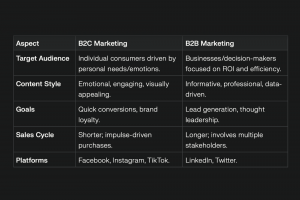Podcaster
Meet Our Top Podcaster
This podcast explores real issues women face, sharing stories and experiences from a Christian perspective. It covers topics from career driven women to women in ministry.
This podcast explores real issues women face, sharing stories and experiences from a Christian perspective. It covers topics from career driven women to women in ministry.
Exploring podcasts by category is an effective way to discover new content that aligns with your interests. Here are some popular categories and platforms where you can browse podcasts:

Designing user-friendly websites tailored for desktop, mobile, and tablet devices to enhance online presence.

Visual identities for brands, including logos, color schemes, and design elements that align with the organization’s mission.

Scheduled posts & monitor conversations and trends to refine your strategy and engage with your audience daily.
Finding the best price for your digital platform involves understanding your target audience, the value your platform offers, and the competitive landscape.
Billed Annually
Understand Your AudienceResearch your target audience’s demographics, interests, and preferred platforms. Focus on the social networks where your audience is most active to maximize engagements.
Social media marketing can significantly benefit your business by enhancing brand awareness, engaging your audience, and driving sales.
Social media marketing offers numerous benefits for your company, including:
1.Brand Awareness and Recognition: Social media helps increase brand visibility, making your company more recognizable and memorable to potential customers. Consistent content sharing and engagement can amplify your brand’s presence across different demographics.
2.Audience Engagement: Platforms like Instagram, Facebook, and LinkedIn allow for real-time interaction with your audience, fostering deeper connections and encouraging brand advocacy.
3.Competitive Intelligence: Social media provides insights into competitors’ strategies, helping you differentiate your brand and make informed business decisions.
4.Cost-Effective Advertising: Social media advertising is more affordable than traditional methods, offering detailed targeting options to maximize ROI.
5.Increased Website Traffic and Sales: By driving traffic to your website and promoting products or services, social media can directly impact sales and conversion rates.
6.Customer Service and Support: Social media platforms are ideal for providing customer service, enhancing customer satisfaction, and building brand loyalty.
7.Thought Leadership and Industry Influence: Social media allows your company to establish itself as a thought leader by sharing valuable content and insights.
8.Improved SEO and Online Presence: A strong social media presence can positively affect your search engine rankings, further enhancing your online visibility.
By leveraging these benefits, social media marketing can play a crucial role in growing your business and achieving long-term success.
Having a blog can be a valuable component of your social media marketing strategy, but whether it’s essential for your company depends on several factors. Here’s a breakdown of the benefits and considerations:
Benefits of a Blog for Social Media Marketing
1.Content Creation and Repurposing: A blog provides a central hub for creating and hosting content that can be repurposed across social media platforms. This helps maintain consistency and reduces the effort needed to generate new content for each platform.
2.SEO and Search Visibility: Blogs can improve your website’s search engine rankings by providing fresh, relevant content. This can drive organic traffic to your site and increase visibility for your brand.
3.Establishing Authority and Thought Leadership: A blog allows you to showcase your expertise and build credibility in your industry. This can attract potential customers who are seeking authoritative advice or insights.
4.Engagement and Community Building: Blogs can serve as a starting point for discussions that can be continued on social media, fostering engagement and community around your brand.
5.Long-Term Content Value: Blog posts remain available over time, providing ongoing value and attracting new visitors long after they’re published.
Considerations Before Starting a Blog
1.Resource Commitment: Maintaining a blog requires regular content creation, which can be time-consuming. Ensure you have the resources to commit to consistent posting.
2.Target Audience Preferences: If your target audience primarily consumes content on social media platforms like TikTok or Instagram, a blog might not be as crucial. However, if they value in-depth content or seek detailed information, a blog could be beneficial.
3.Integration with Social Media Strategy: A blog should be integrated into your overall social media strategy. Use social media to promote your blog posts and drive traffic back to your site.
4.Content Strategy: Ensure that your blog content aligns with your social media content strategy. This will help maintain a cohesive brand voice and message across platforms.
Alternatives or Complements to a Blog
1.Video Content: If your audience prefers video content, consider focusing on platforms like YouTube or TikTok for your core content creation.
2.Podcasting: Podcasts can serve as an alternative to written content, offering a different format for engaging with your audience.
3.Social Media-Exclusive Content: If your audience is highly engaged on social media, you might focus on creating content directly for these platforms.
In summary, a blog can be a powerful tool for social media marketing by providing a central content hub, enhancing SEO, and establishing thought leadership. However, it’s essential to consider your audience’s preferences and your company’s resources before deciding whether to invest in a blog.
Social media marketing can be highly effective for both B2B (business-to-business) and B2C (business-to-consumer) companies, but the approach, goals, and platforms used often differ significantly.
Here’s an in-depth comparison to help you determine which is better suited for your business:
Social Media Marketing for B2C Businesses
Strengths
1. Emotional Appeal: B2C marketing thrives on creating emotional connections with consumers, often leveraging storytelling, visuals, and trends to influence purchasing decisions.
2. Quick Conversions: Social media platforms are ideal for driving impulse purchases through promotions, discounts, or limited-time offers.
3. Wide Reach: Platforms like Facebook, Instagram, TikTok, and Twitter are highly effective for reaching large audiences and engaging with diverse demographics.
4. Community Building: Social media enables B2C brands to foster loyalty by engaging directly with customers and creating a sense of community.
Content Focus
• Eye-catching visuals (e.g., images, videos, memes).
• Short-form content like reels or TikTok videos.
• Promotions, contests, and giveaways to encourage interaction.
Metrics of Success
• Engagement rates (likes, comments, shares).
• Website traffic and conversions.
• Brand awareness and follower growth.
Platforms
• Facebook (96% of B2C marketers find it valuable).
• Instagram and TikTok (popular among younger audiences).
• Pinterest (for visually driven industries like fashion or home decor).
Challenges
• High competition for attention in crowded feeds.
• Maintaining relevance with rapidly changing trends.
Social Media Marketing for B2B Businesses
Strengths
1. Thought Leadership: B2B marketing focuses on building trust and authority by sharing educational content such as whitepapers, case studies, and industry insights.
2. Lead Generation: Platforms like LinkedIn are particularly effective for targeting decision-makers and nurturing relationships over time.
3. Relationship Building: Social media facilitates long-term engagement with clients through personalized interactions and account-based marketing strategies.
4. Data-Driven Decisions: Analytics tools help measure ROI on lead generation efforts more effectively.
Content Focus
• Informative posts (e.g., articles, webinars, infographics).
• Industry-specific insights to educate potential clients.
• Case studies showcasing measurable results.
Metrics of Success
• Lead generation and conversion rates.
• Website traffic from targeted campaigns.
• Engagement from decision-makers (e.g., comments or shares on LinkedIn).
Platforms
• LinkedIn (80% of B2B leads are generated here).
• Twitter (for sharing industry updates).
• Facebook (for broader visibility).
Challenges
• Longer sales cycles that require consistent nurturing.
• Smaller target audience compared to B2C.
Key Differences Between B2C and B2B Social Media Marketing

Which is Better?
The effectiveness of social media marketing depends on your business model:
1. B2C businesses benefit more when aiming to drive quick sales or build a large audience through engaging content. Platforms like Instagram or TikTok are ideal for creating viral campaigns that resonate emotionally with consumers.
2. B2B businesses excel when leveraging social media to establish authority and nurture leads over time. LinkedIn is particularly powerful for connecting with professionals and decision-makers.
Ultimately, both B2C and B2B businesses can achieve success with social media marketing if they align their strategies with their specific goals and audience needs.
If you don’t see the answer you need, feel free to reach out to me directly. Iwe’re here to help with any questions or topics you’d like to explore further. Whether it’s about social media marketing, leadership training, brand strategy, or any other subject, I can provide more detailed information or point you in the right direction.
To get solutions for your business needs, whether it’s related to social media marketing, leadership training, brand strategy, or web/graphic design, follow these easy steps:
Book a service, whether it’s related to social media marketing, appointment scheduling, or another business need, here are some steps and resources to help you: determine what you want from a social media marketing service.
Consultation for your business needs involves clarify Your Objectives: Determine what you hope to achieve from the consultation. Are you seeking advice on social media marketing, leadership development, or web design.
Check your growth involves monitoring key performance indicators (KPIs) that reflect how well your business is scaling and achieving its strategic goals. Revenue Growth Rate: Measures how much your revenue increases .
Leverage Social Media Platforms
• Tailor your content to each platform’s unique features. For example, use visually appealing posts on Instagram and thought-provoking questions on Twitter
You can expect a variety of exclusive content from our newsletter, including Unique Articles: Original content not found on the main site, such as personal stories or insights. Behind-the-Scenes Access: Sneak peeks into projects or daily operations. Expert Interviews: Q&A sessions with industry leaders.
Copyright © 2024-2025 Growing In Sisterhood
